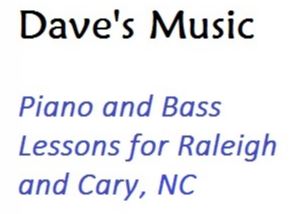Why Music Lessons are Good for Kids
- Jun, 10, 2023
- pianolessonsraleigh@gmail.com
- Uncategorized
- No Comments.
In my professional opinion, music lessons and practice are a wonderful and beneficial way to spend time, especially for children. While there’s no denying the incredible benefits our advanced technology brings to our everyday lives, we need to remember to slow down and study something in-depth that’s challenging and fully engaging for mind, body and emotion. Music fits the bill!
Convenience, ease, comfort, Google–what amazing gifts and blessing we have available to us now thanks to modern technology. But behind that perfectly crafted and polished movie, video game or rock music video is intense and continuous labor plus discovery, failure, sweat and imagination. Becoming good at music requires all of these things. Music students are required to learn that there’s process and continuous effort behind the final, polished product. What a valuable lifelong lesson.
Regularly practicing an instrument- preferably with the regular feedback that a skilled teacher can provide- requires you to use your whole brain as well as your body in a highly coordinated, precise and demanding way.
Experienced music teachers learn to develop a special insight into the inner workings of their students’ minds and emotions. How’s that? It’s exactly because in order to play music every region of the brain comes to service. Therefore, strengths and weaknesses become apparent to the music teacher. Just watch this fascinating Ted Talk on Music and the Brain.
Additionally, teachers constantly need to motivate, inspire and relate to students on a very human level in order to help them develop their abilities.
Practitioners of music are gifted with an excellent way to self-regulate, destress and simply escape from the stresses of modern life in a safe and healthy way. As such, music can become a lifelong “friend.” What’s more, engaging in music can open up doors socially as it’s so much fun to create music with others, and people are naturally drawn to those who can create it. The social opportunities and connections available to school band, orchestra and choir students, or to those who practice music-making in religious circumstances, cannot be overstated.
Science is proving that the quality and variety of our social relationships is what actually makes the biggest difference for our health and happiness. Musical engagement can foster so many social interactions in the community that having musical skills may indirectly lead to more happiness and health.
There’s probably more to come, but these are some of my thoughts on why I believe studying and practicing music is very worthwhile for people, especially youngsters.
